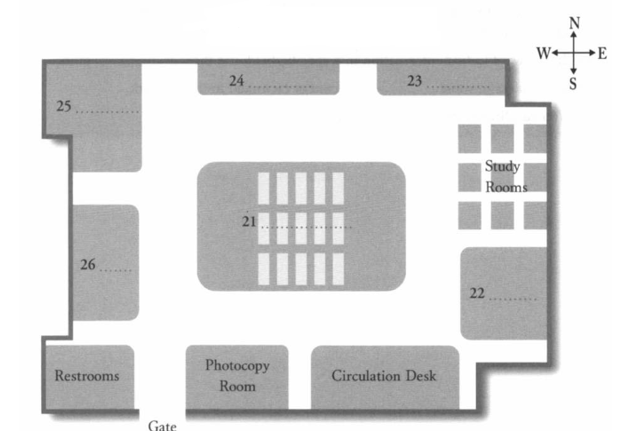Part 1: Questions 1-4
Complete the notes below. Write ONE WORD ONLY for each answer.
| Name: | Barbara Hill |
| Location: | (1)……………………..London |
| Postcode: | SW105 |
| Rooms: | Two (2)………………….bedrooms |
| The other room used as: | An (3)……………………. |
| Downstairs: | Kitchen-diner, conservatory and (4)………………. |
| Pets: | 2 dogs and 3 cats |
(1) (2)
(3) (4)
Questions 5-7
Choose the correct letter, A, B, or C.
5. Which of these extra services does the customer agree to do?
A Change the bed linen
B Do some gardening work
C Clean the glass
6. What does the customer want cleaned every three months?
A Curtains
B Carpets
C Mats
7. What does the customer want done with clothes?
A Wash and iron the clothes
B Iron the clothes
C Clean and dry the clothes
Questions 8-10
Complete the sentences below. Write ONE WORD AND/OR A NUMBER for each answer.
The agent’s address is 12 (8) Road.
Her house will get cleaned next (9)
The maximum time of cleaning service is (10) hours
Part 2: Questions 11-17
Choose the correct letter, A, B, or C.
11. The main purpose of the service is to
A educate people.
B persuade people to fly.
C provide people with comfort.
12. The number of people working at Sydney Airport is
A 200
B 360
C 440
13. Dogs are chosen according to
A their ability to stay calm.
B their friendliness.
C their skill at locating narcotics.
14. The number of postal items processed last year amounted to
A 4,400.
B 52,000.
C 72,000.
15. People carrying items that are not allowed
A will get arrested.
B will be refused on board.
C will be given a warning.
16. Which of the following is NOT allowed to be taken on the flight?
A Carry-on items
B Plant seeds
C Parcels
17. What is the proper security protocol for a pocket knife found in a carry-on suitcase?
A It is returned to the passenger after examination.
B It is thrown away in a safe receptacle.
C It is passed on to higher-level authorities.
Questions 18-20
Complete the sentences below. Write NO MORE THAN THREE WORDS for each answer.
The acceptable material for packing goods in Australia is (18)
The belongings most of time are refused due to problems with the (19)
The customs must be given notice of the goods from (20) days before it arrives in Australia.
Part 3: Questions 21-26
Write the correct letter, A-F, next to questions 21-26.

(21) (22)
(23) (24)
(25) (26)
A Video resource centre
B Reading room
C Food service centre
D Periodicals section
E Enquiry desk
F Satellite TV station
Questions 27-30
Complete the sentences below. Write NO MORE THAN THREE WORDS for each answer.
If you need to find information on a certain book, you can use (27) check-out cards.
If you want to find information in a specific field, use the (28) guides.
Computers in some (29) cannot be linked to the network.
You can find more information in a (30) on my desk.
Part 4: Questions 31-35
Choose the correct letter, A, B, or C.
31. The student thought there were no crocodiles in Northern Africa because
A North Africa contains very little wildlife for the crocodile to prey on.
B she found no mention in the literature of their existence there.
C there is very little water in North Africa.
32. Generally, crocodiles live in groups of about
A 20
B 38
C 46
33. African crocodiles usually live in areas with
A hot, dry climates.
B hot, wet rainforests.
C warm, wet climates.
34. Crocodiles in dry areas live in caves located
A underground.
B in mountainsides.
C underwater.
35. What change caused changes in crocodile populations in North Africa?
A They were driven away by a fierce predator.
B Crocodiles evolved from desert creatures to wetland creatures.
C North Africa used to be wetland but slowly turned to desert over time.
Questions 36-40
Complete the sentences below. Write NO MORE THAN TWO WORDS AND/OR A NUMBER for each answer.
Desert crocodiles sometimes live in places with dry periods that last up to (36) months.
A hole dug by a female crocodile in which to lay eggs can have a (37) of up to 60 cm.
Local people are not (38) crocodiles.
Crocodiles (39) out of fear when humans populate their habitat.
Researchers want to study more about population size, (40) , and relations to other populations of crocodiles.